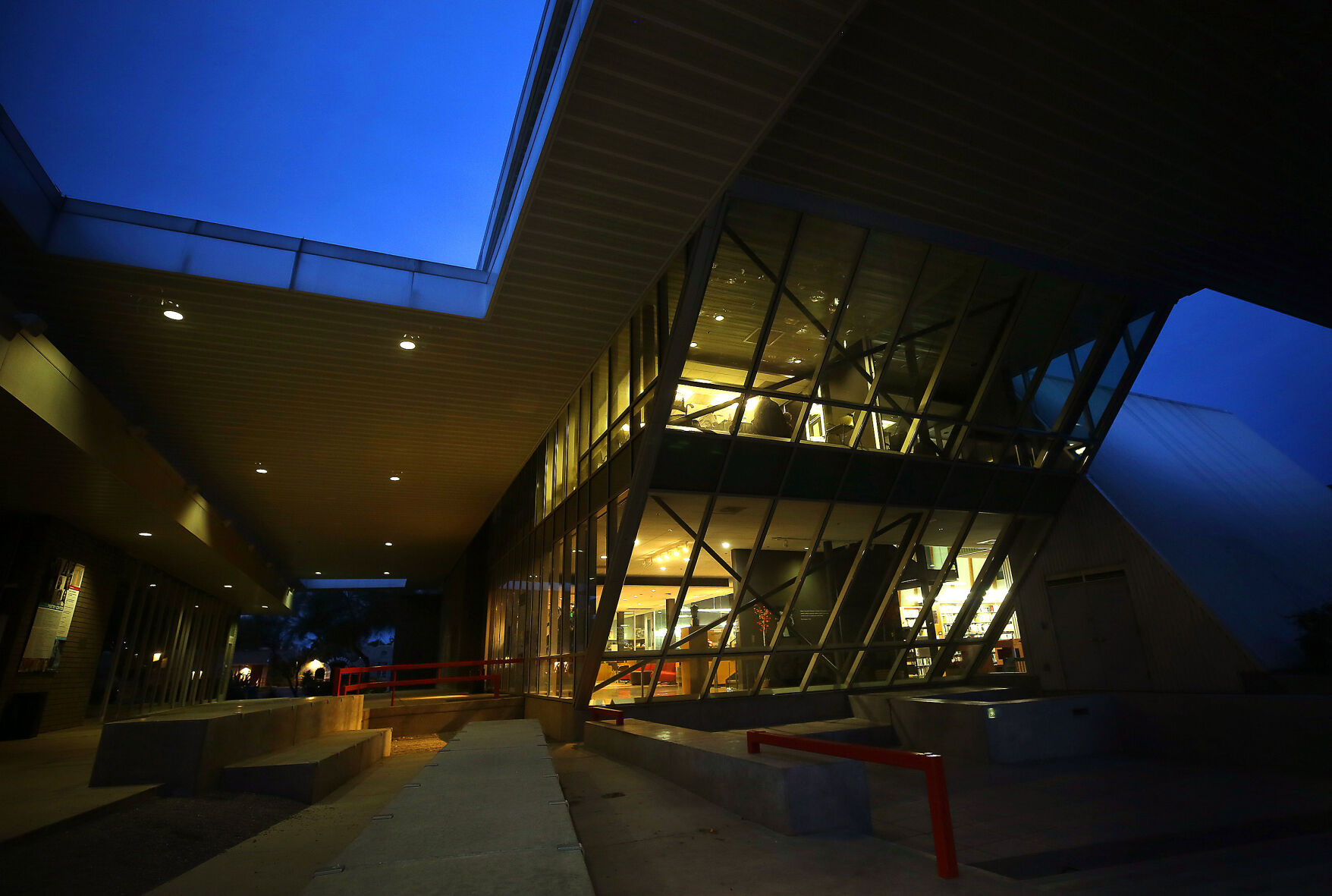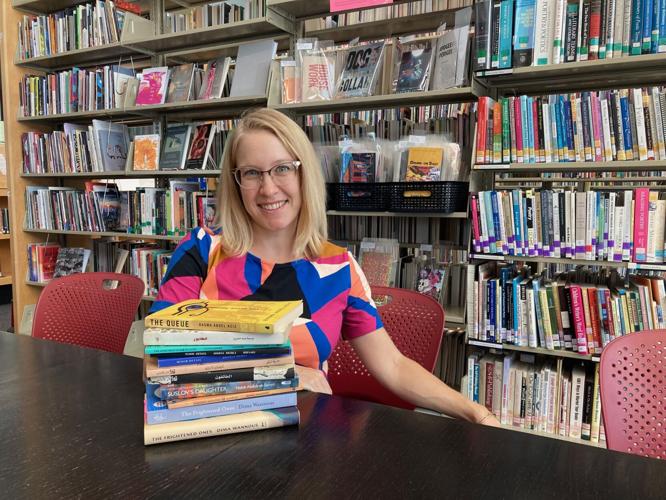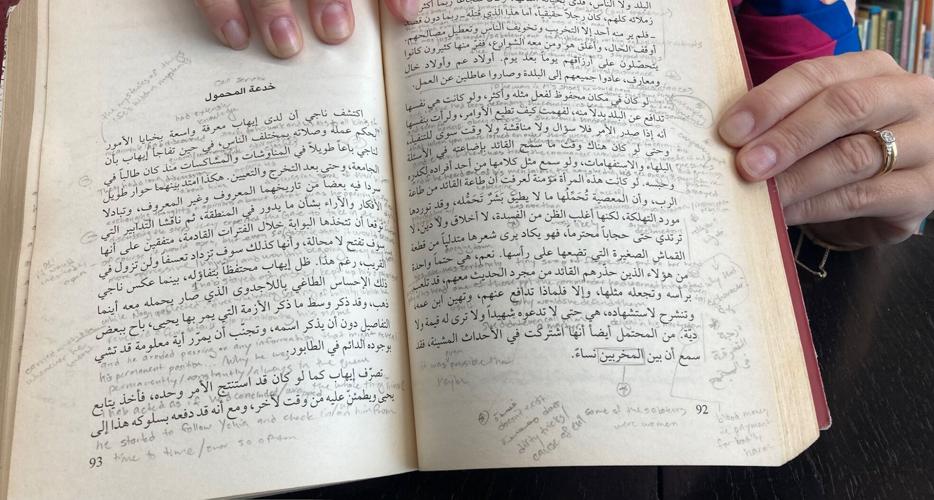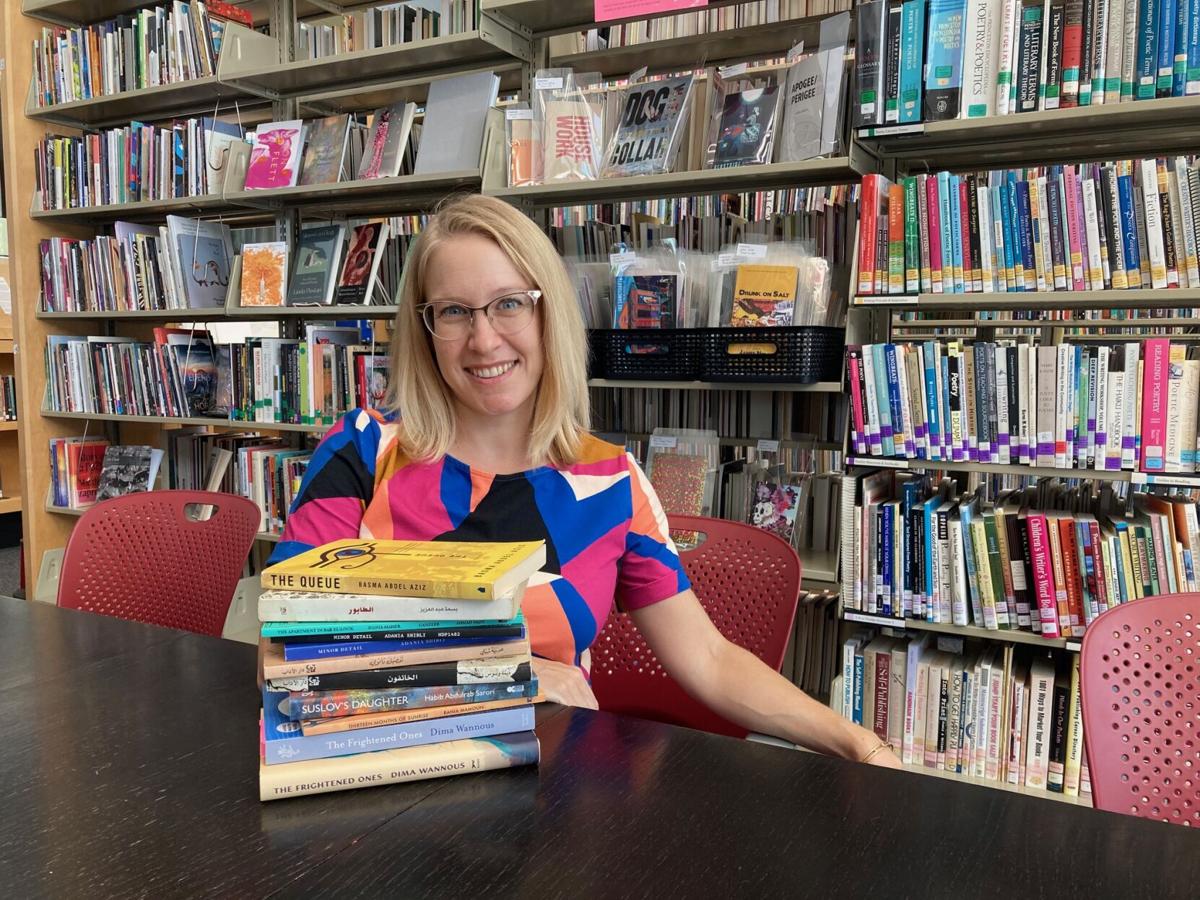Words give us the power to create community, telling amazing stories for centuries to come — regardless of language.
A national, now Tucson-based, organization has spent decades sharing the power of words and language through the translation of international literature.
The American Literary Translators Association housed within the College of Humanities at the University of Arizona is a resource hub for local, national and international translators who convert novels, poems, plays and other prose published in languages around the world into English.
“It's important as humans living in the world to think beyond ourselves and books and literature are one way that we get to inhabit someone else's perspective or story, whether it's fictional or nonfiction,” said Elisabeth Jaquette, the executive director of ALTA. “And reading beyond our borders and internationally helps us imagine a world that is more connected.
“It's complex, but it's thrilling to get to experience books that do something that maybe we didn't know they could do before. There are all sorts of other literary traditions or conventions or styles that we don't have in English and when you read a book from another language, you get to experience something that maybe you'd never thought that books could do.”
The membership-based organization currently has around 800 members from around the world, including a few translators here in Tucson — like Jaquette.
While living in Cairo, Egypt for over five years, Jaquette learned Arabic and dove into the local literary scene. After realizing she missed reading books and chatting with friends about them, she started a book club that was primarily focused on Arabic books. Eventually, the book club transformed into a club about translation.
“I started reading books in Arabic that hadn't yet been published in English and just really wanted to share these books with my friends who read in English,” she said. “And that's how I started off becoming a translator with just the desire to have that reading experience where you read a good book and you say, ‘Oh, this was so good, I can't wait to give it to someone else and have them read it too’ and let them have this experience and then talk about it with them.
“And as a translator of literature, that's what I get to facilitate — both for my friends and family, but also for people who I will never meet, who get to read incredible stories and experience literature in a new way, thanks to the work of translators.”

Elisabeth Jaquette shows her marked up copy of “The Queue,” which she translated from Arabic to English.
Another local ALTA translator is Susan Briante, a writer and UA professor who holds a doctorate in English. Briante, who learned Spanish while living in Mexico City for six years, has translated various styles of written works from Spanish to English.
Briante says translation has not only impacted her as a reader but as a writer, too.
“It's expanded the way I've been able to write or speak about writing,” she said. “I’ve learned so much from the act of translation. I continue to learn so much from the translators that I'm lucky enough to be around. I learned so much from reading in translation.
“I think, especially today, we live in a world in which there is so much information coming at us and it's coming at us often through information that flows freely, but it's flowing through algorithms. And in a really interesting way, translation is a way to disrupt the algorithm. It brings us into context. The context within words and worlds that we wouldn't necessarily be exposed to. And so as readers, as writers, and then for those of us who are lucky enough to be able to participate in the act of translation, it's powerful.”
Briante has been involved with ALTA for several years, even when the organization was still at its founding school at the University of Texas at Dallas, where she was teaching at the time. ALTA moved to the UA in 2019.
An international conference in our own backyard 🌵
Since the association’s start in 1978, its goal has been to create a community for translators, providing resources to translators both up-and-coming and experienced.
Some of the resources offered to translators include a series of guides on how to get started, help with negotiating translation contracts and information about grants and awards, along with translation workshops twice a year.
“The main mission is to bring incredible literature from around the world to English readers by supporting the people who make that happen, which are translators,” Jaquette said.
One of the most impactful resources for ALTA translators is its annual conference. This year’s conference, dubbed “ALTA46: The Place of Translation” will be in Tucson from Nov. 8-11.
The conference features awards, panels, roundtable discussions and a bilingual reading series. While there is a registration fee to attend the ALTA46 conference, the association is also hosting various free events to the community.

Helen Schaefer’s “astonishing leadership” is why her name is on the building that houses the University of Arizona Poetry Center, according to the executive director of the center.
ALTA kicked off its free events on Oct. 3 with a poetry scavenger hunt at the UA Poetry Center, followed by a book-hiding event from the Tucson Tome Gnome on Oct. 22.
Starting Nov. 8 through Nov. 11, locals can visit a Poetry Mailbox and take home a random book translated by an ALTA member. The mailbox is located in the Broadmoor-Broadway Village Neighborhood. Antigone Books on Fourth Avenue will also have displays of translated literature during this time.
Also starting Nov. 8, local volunteer group Urban Poetry Pollinators will be creating chalk displays of titles long-listed for this year's National Translation Award in Poetry. You can find the chalk displays at the UA Poetry Center, the University/Tyndall streetcar stop (outside the Marriott hotel), outside Sky Bar on Fourth Avenue and at the Historic Y’s Scoundrel & Scamp Theatre.
The public events conclude with a poetry reading and keynote address from Sawako Nakayasu on Nov. 10 at the UA Poetry Center and Tucson Marriott University Park Hotel, followed by a staged reading of this year’s Plays in Translation Contest winner on Nov. 11 at the Historic Y’s Scoundrel & Scamp Theatre. Find the full event schedule here.
“The conference is this really exciting, vibrant time where the people who bring international literature into English all get to come together and share each other's work and celebrate each other's work and talk about the craft and practice and the importance of reading beyond our own borders,” Jaquette said. “Tucson is such a multicultural and multilingual city — things that are reflected in our membership and our constituents. And so to be able to bring those folks here to Tucson, we couldn't be more thrilled.”
Since the annual conference is typically held in different cities each year, Jaquette would like to see the event stay closer to home while continuing to connect Tucsonans with international literature.
“I know that Tucson is a city filled with readers and people who are interested in the arts, people who think beyond borders. And my dream is to keep on offering things for those folks in Tucson who want to read world literature and find ways to nurture that community here, whether that's a book club for readings from around the world or just more events here in Tucson. That's what I would love to see,” she said.
“I think we are still growing roots in our home here in Tucson and I'm excited to see what that will bring in the years to come.”
For more information about ALTA, visit their website.






